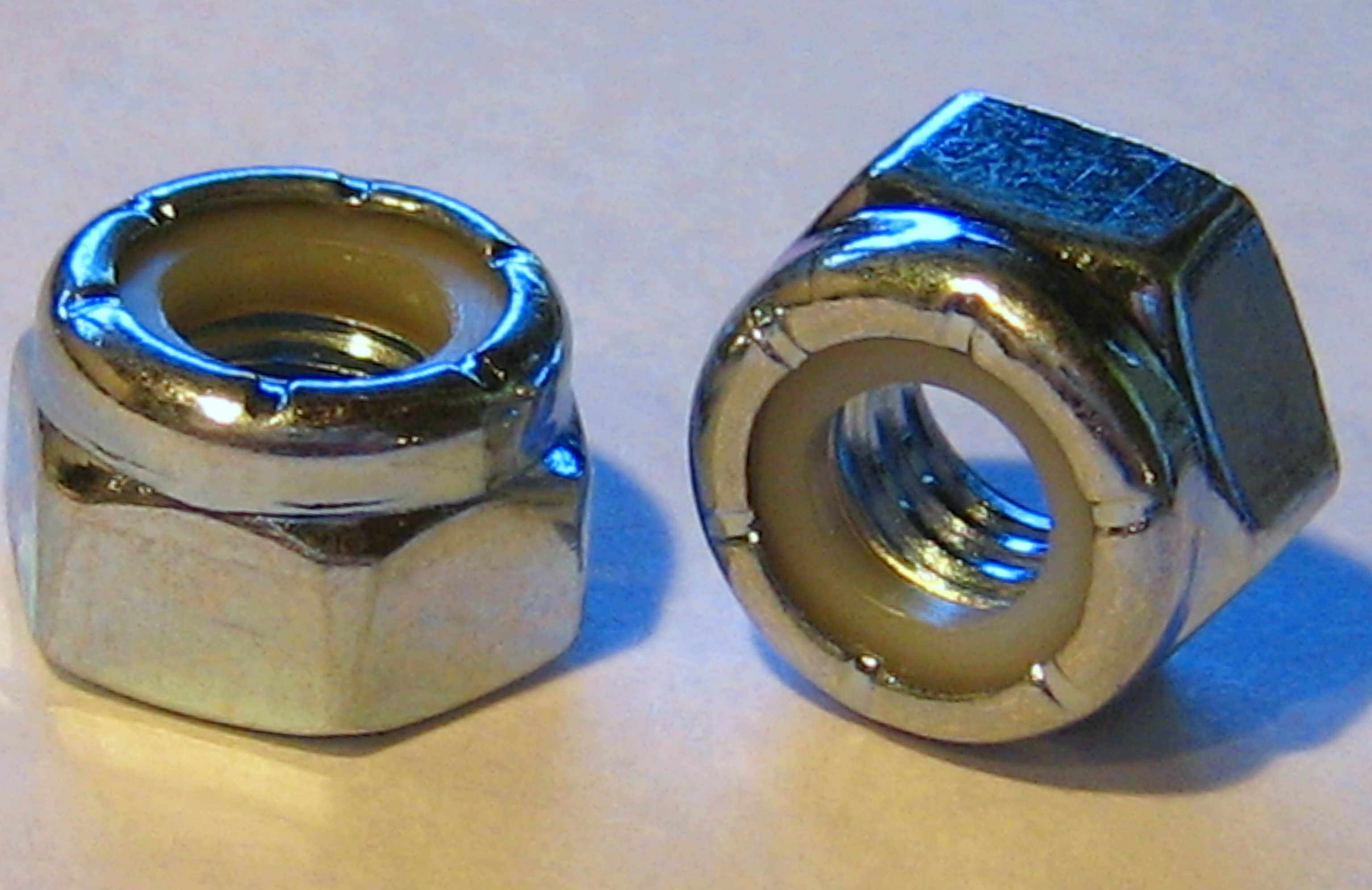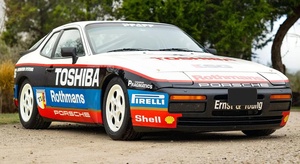
So the 327 in my corvette apparently has a broken rocker stud on the number 5. Wonderful. Its always been down on power from what it should make and bet its been flooping around in there since the beginning causing all of my crappy tuning issues. Have not put many miles on the car. So the rocker stud broke right at the cap so plenty of thread to get it out.
I have a set of 3998993 heads on it. These are the off the smog era 72/73 327. Likely a Camaro, they have upgraded Harland Sharp roller rockers that are actually pretty nice. The heads are drilled and pinned so getting the stud out is going to be a royal pain in the ass. This was the hot ticket on some of these 327's back in the day for cheap power so not going to knock the engine builder. The car does have a 282 cam dynamics in it so it could use a bit more flow.
So questions.
Can I just knock the role pin out and press in another 3/8th shaft and slap it back together? I can buy a new rocker and nut and new 0.003 stud I am looking at ~80$ all in from summit here on Sunday. Can I do this with the heads on the car. I think I am going to have to pull the intake to get to the roll pin which means pulling the head might be easier and If I am going that deep. Is there a cheap off the shelf head that I can just move all my parts over to and make some more power for say 400$ all in.
Short answer is if I get a good set of 350 heads off craisglist in the 192 range with good valves and they already have drilled in rocker arms is that the better fix.
I have not priced performance heads but I would think that a set all in is going to be mote than$400. You are also going to want smaller cc heads just due to it being a 327 and not a 350. Maybe summit has a economy performance head?

Mr_Asa
UberDork
4/16/21 9:02 p.m.
Complete iron heads are definitely less than $400, I saw some bare aluminum heads in a 10-second google for $399.99
If you can live with cast iron this looks to be a decent price.
https://www.summitracing.com/parts/sum-152123
At first glance 72cc seams a bit large for a 327 but I have been out of the SBC game for a long time.
Was there a 327 in 72/73?
In reply to GTwannaB :
Not sure. I thought it was stopped in 69 but not 100 percent sure on that.
EDIT. Wikipedia said 62-69.
Special order in the corvette?
There is no difference between a 327 and a 350 head. There are differences by production date, but any head bolts pretty much anywhere on a split rear seal engine. Big valves might not clear small bores, and early heads don't have the bosses and holes to mount accessories. Might be an opportune time to get something with hardened seats, because too many miles with unleaded fuel will have some valve recession problems.
If you can get the pin out, stack washers on the stud until you can crank the the nut down to pull the stud. Or break it. Then you can pull the heads and machine them for screw in studs.

mdshaw
Reader
4/16/21 9:52 p.m.
Good excuse to put some better heads & possibly a better intake (if it's cast). When I had my 69 Camaro I installed much better heads & an aluminum intake & was a nice improvement. Then was a cam & etc.
dean1484 said:
In reply to GTwannaB :
Not sure. I thought it was stopped in 69 but not 100 percent sure on that.
EDIT. Wikipedia said 62-69.
Special order in the corvette?
350 showed up in Corvette and a few SS Camaros in 67, and in everything else by 69 or so. Chev added stroke to stuff, so the 327 became the 350, 283 became 307, which didn't last long until the 305 replaced it. Longer stroke, smaller bore? I used to know aaaallll the numbers...
Ok heads it is.
Did get the rocker bolt out pretty easily after I knocked out the retaining pin. Got coolant all over the garage was not expecting that. So its 3.99 for a rocker bolt that is .003 oversized so going to pick one up and a bolt tomorrow and see if I can get it assembled and running so at least I can play around while waiting on a deal for some aluminum heads. Don;t know if I can get the bolt head though they look special as they are round. Could make one on the lathe if I needed to but may ask around to see if someone has one.
In reply to wearymicrobe :
Rocker stud, not bolt.
Bolt head = what? The rocker nut? If so it's a special nut.
Sorry rocker stud is what I pulled out. I was able to repair the poly nut, which had a bit of the stud left in it, for the top of the rocker by cutting a quick slot in the left over bolt inside and using a easy out and some drill bits to remove it. So all the parts are basically ready to go except for the stud which I need to pickup tomorrow.
Looks like by digging online I just need to drop the new oversized stud onto dry ice mixed with ETOH to get it to shrink and hit the head with some heat up to about 200f and it should slide right in. Add in some locktight and it should hold the cam and springs I have in the motor no problem until I get some new heads.
I will write up everything if it works.

Mr_Asa
UberDork
4/17/21 12:31 a.m.
Poly nut? You mean like a nyloc nut like in the pic below? If so, I don't know that I'd trust that on internals. Every rocker arm I've seen has been held on with a distorted head lock-nut (no picture as its hard to see the difference in them in pics.)

dean1484 said:
If you can live with cast iron this looks to be a decent price.
https://www.summitracing.com/parts/sum-152123
At first glance 72cc seams a bit large for a 327 but I have been out of the SBC game for a long time.
For the folks following along, bear in mind, that is a bit over $350 per head, not per pair! But even at that, it was not that many years ago a new (not used) head casting was that much bare. That a right good deal considering where the rest of the economy is.
Serious question; since a 350 and a 327 are the same bore, why (not knowing what pistons or CR he has) would a 327 need smaller cc heads, just be not being a 350?
I've never done a lot of serious builds, but I listened to a lot of bench racing, from guys that raced a lot.
In reply to 03Panther :
Smaller cylinders need smaller CC heads for the same compression, no matter if it's smaller because of bore or stroke. Of course if the heads you are pulling off have large chambers, it's kind of a moot point. A '72-73 307 (assuming 327 is a typo) would have large chambers in an attempt to kill NOx-producing compression.
I'd beware the super cheap aluminum heads. Lots of times the money you save is more than spent at a machine shop having the heads gone through, valves replaced, springs and seals replaced... Even name brand heads like Edelbrock need some attention before they go on a street car.
The budget alternative:
You'd need to replace your intake manifold, but a pair of vortec heads would get you the best OEM small block head Chevy ever made.
Pete. (l33t FS) said:
Smaller cylinders need smaller CC heads for the same compression, no matter if it's smaller because of bore or stroke.
Smaller bore I get. Or if the CR is different. But I can't wrap my mind around the slightly smaller stroke. I would imagine the CR was the same, since different pistons. Prolly just me being thick this morning. 
CC and piston top dimensions would determine CR, wouldn't it?
A 4 inch bore with a 3.25 stroke creates a smaller volume than a 4 inch bore with a 3.48 inch stroke. Compression ratio is a comparison of cylinder volume plus chamber volume at bottom dead center to the same at top dead center. Less volume at bdc jammed into the same volume at TDC in a 327.

RossD
MegaDork
4/17/21 8:57 a.m.
350 cid / 8 cylinders = 43.75 ci per cylinder
327/8= 40.875 ci per cylinder.
Smash both into 72 cc combustion chamber and the 350 gets a higher compression. More air into a smaller space.

03Panther said:
Pete. (l33t FS) said:
Smaller cylinders need smaller CC heads for the same compression, no matter if it's smaller because of bore or stroke.
Smaller bore I get. Or if the CR is different. But I can't wrap my mind around the slightly smaller stroke. I would imagine the CR was the same, since different pistons. Prolly just me being thick this morning. 
CC and piston top dimensions would determine CR, wouldn't it?
CR is determined by dividing the size of the whole chamber area at BDC by the whole chamber area at TDC, the actual bore and stroke don't really matter. That's actually one of the advantages of a stroker motor, you can get decently high compression without having to resort to domed pistons, which hurt combustion efficiency and can actually increase detonation.
On the flip side, look at naturally-aspirated era F1 pistons, when they had a crazy bore to stroke ratio. In order to get "only" 12-13:1 compression they had to have pistons that looked like a mold of the cylinder head, with valve pockets exactly as deep as they needed to be. That's part of why F1 had a fuel octane minimum, not maximum. (The other reason was, at 18,000 rpm, you run into fuel combustion speed limits the same way Diesels are RPM-limited by the smoke limit, so they were running on deliberately induced detonation so the fire could keep up with the piston leaving TDC)
In reply to Mr_Asa :
Poly nut to me is this. They have a threaded hex inside the top that you snug to the top of the rocker shaft to keep everything in place. 

Mr_Asa
UberDork
4/17/21 12:10 p.m.
In reply to wearymicrobe :
Gotcha. Just wanted to make sure you weren't using nylocs
RossD said:
350 cid / 8 cylinders = 43.75 ci per cylinder
327/8= 40.875 ci per cylinder.
Smash both into 72 cc combustion chamber and the 350 gets a higher compression. More air into a smaller space.
I completely understand that, and streetwiseguy. But that doesn't take in to account what pistons either has; that will affect the CR.
"Compression ratio is a comparison of cylinder volume plus chamber volume at bottom dead center to the same at top dead center."
Correct. and depending on the shape of the piston top, and the volume of the combustion chamber, that number can be different from one engine to another with the same size bore/stroke. A smaller 327 could have a higher CR with 72 cc heads and domed pistons, than a larger 350 with 72cc heads and dished pistons... at least if I'm thinkin' correctly. 
There are replacement rocker studs that are threaded on the bottom too - not the "performance hex-nutted" ones that require machining, but basically a threaded-fit stud instead of a press-fit stud.
I'd also recommend the Vortec heads.
(running heavily-ported 305 heads on my truck's 350)


































